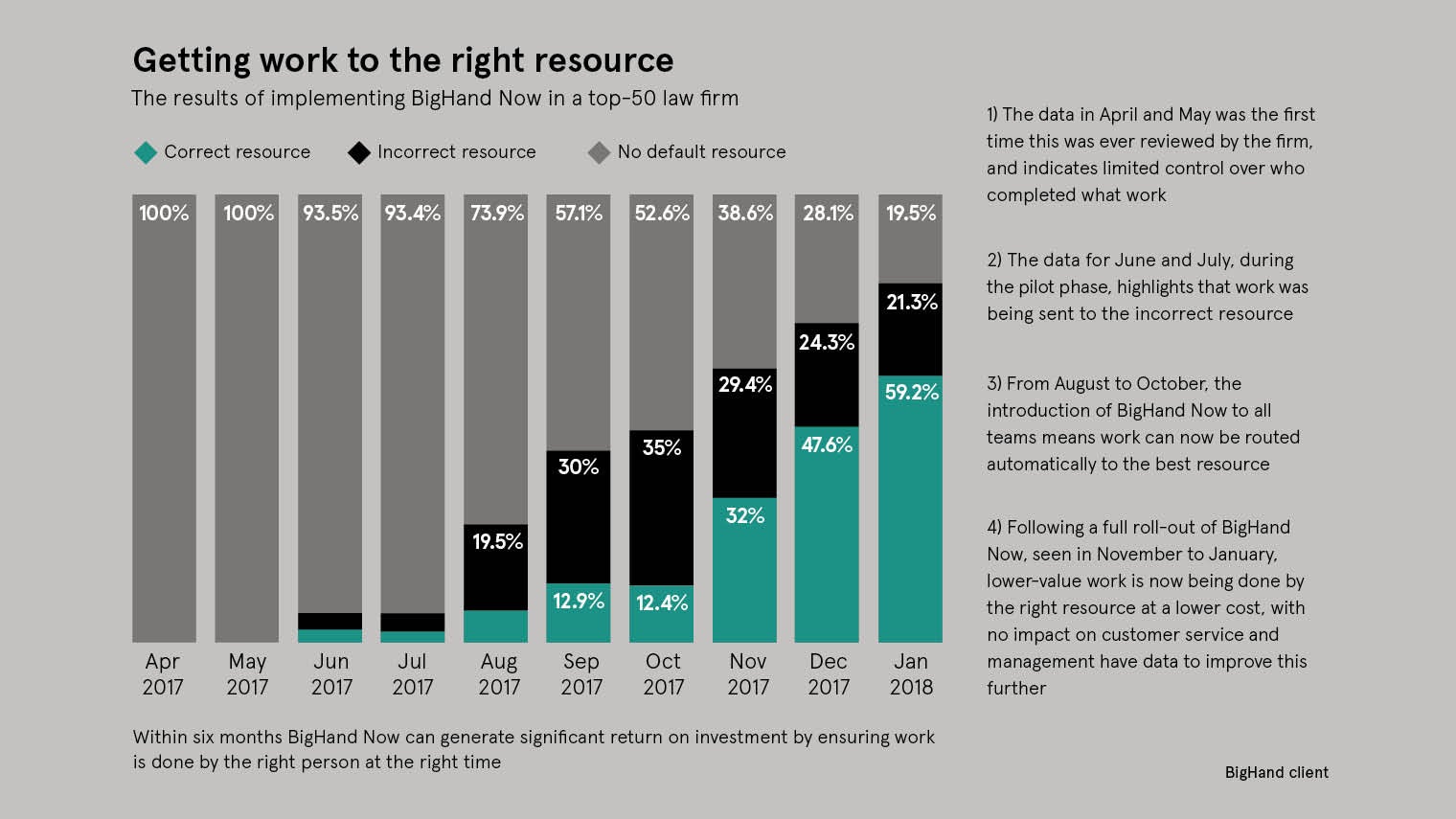Business clients, themselves under financial pressure, are slashing fees and bringing more work in house. New competitors in various guises are nibbling at the edges. There is constant downward price pressure and this is hitting profits across the legal industry.
To protect margins, law firms need to become more cost conscious. While they have always focused on the fee-earners who carry out legal work, they have invariably paid less attention to the activities of support staff. They are now turning the spotlight on staff such as legal PAs and team assistants to make sure they are doing the right work and operating as efficiently as possible.

Progressive law firms understand the incremental gains they can reap by modernising their back-office operations. They are using new tools that help them assign tasks in the most economically efficient way, without damaging client service.
This is only one part of the solution, however. Creating processes that delegate work effectively requires a deep understanding of the workflow and it requires a significant focus on adoption.
A key element of analysing the flow of work is to find ways of making best use of the specialised skills and knowledge among support staff. You don’t want expensive legal PAs doing photocopying or archiving when a lower-cost team assistant is perfectly, if not more, capable. Customers will not pay for low-value tasks, so law firms need to spend as little as possible getting them done. The secret is to have a system that allocates the right tasks to the most appropriate back-office staff.
Streamlining business services starts with visibility
The first step to achieving this is to get an accurate picture of the support skills available and how they are being used. Getting this information is difficult, but critical. It should now be a top priority for law firms of all sizes that want to compete effectively.
Secretarial services managers often manually put together a weekly or monthly spreadsheet for board meetings, roughly outlining the work of support staff. Law firms lack accurate data on support staff effectiveness so this area has been managed blind. Law firms need to gain greater insights into the way support staff operate to help them understand where improvements can be made.
One common mistake is that law firms invest in a variety of workflow solutions. While these offer pockets of success, they tend to be expensive and complex. They often struggle to function ubiquitously across the business. The theory is great, but the practicality is tough.
Having developed considerable experience in observing the workflow processes of law firms over the past decade, Big Hand has leveraged this knowledge to create a task-delegation system that allows a law firm to organise, disseminate, track, monitor and report on the firm’s entire support staff workload. The system allocates work to the people who are best placed to do it or can do it at the lowest cost.
In contrast to heavyweight workflow solutions used by some big law firms, our software is off the shelf, easy to configure and can be deployed rapidly. Law firms can readily adapt it to how they work and, critically, it is quickly adopted by fee earners. Our consultants go into the firm and install, implement and train staff on how to use the system, but once it is up and running, the firm manages it themselves. It is not onerous for IT and does not require third-party involvement.
For the first time, Big Hand Now gives law firms a lens into the operational side of their legal services work. This allows them to make sensible and informed decisions about support ratios, team structures, competencies and office space. It provides a tool to help them proactively transform the way the firm operates. This will be crucial to halting the underlying attrition on profit while still delivering superb customer service.
James Kippenberger will be hosting a webinar to discuss this topic further on Thursday February 15 at 1pm.






